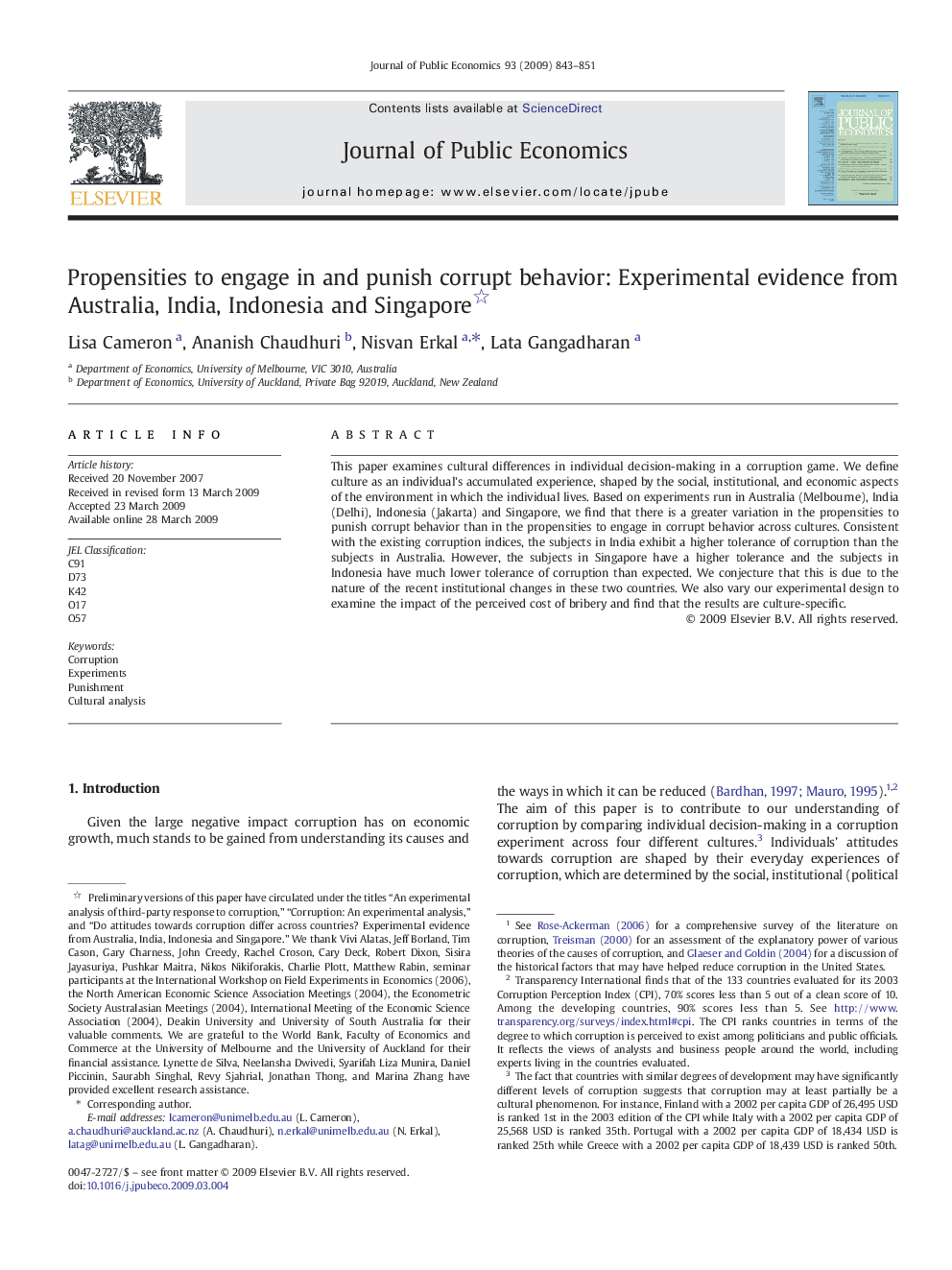| Article ID | Journal | Published Year | Pages | File Type |
|---|---|---|---|---|
| 968767 | Journal of Public Economics | 2009 | 9 Pages |
This paper examines cultural differences in individual decision-making in a corruption game. We define culture as an individual's accumulated experience, shaped by the social, institutional, and economic aspects of the environment in which the individual lives. Based on experiments run in Australia (Melbourne), India (Delhi), Indonesia (Jakarta) and Singapore, we find that there is a greater variation in the propensities to punish corrupt behavior than in the propensities to engage in corrupt behavior across cultures. Consistent with the existing corruption indices, the subjects in India exhibit a higher tolerance of corruption than the subjects in Australia. However, the subjects in Singapore have a higher tolerance and the subjects in Indonesia have much lower tolerance of corruption than expected. We conjecture that this is due to the nature of the recent institutional changes in these two countries. We also vary our experimental design to examine the impact of the perceived cost of bribery and find that the results are culture-specific.
